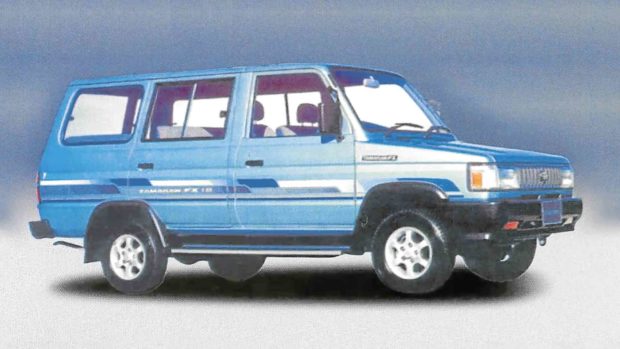
POPULAR MODEL The Toyota Tamaraw —PHOTO FROM TOYOTA PHILIPPINES WEBSITE
TOKYO — Unlike the critically endangered Bubalus mindorensis for which it was named, Filipinos may again see the iconic Toyota Tamaraw back on Philippine streets.
This, after President Ferdinand Marcos Jr. welcomed the plan of Japanese carmaker Toyota to revive the popular Tamaraw model in the Philippine market.
“Many of the Tamaraws you’ve built are still on the road,” the chief executive said at a meeting with Toyota executives on Friday.
Because of the popularity of the Toyota brand in the Philippines, the president said the Armed Forces of the Philippines is looking at acquiring more Toyota Mini-Cruisers.
“It’s something we would like to revisit, simply because we have tried many utility vehicles for the military but they really have not been a success for us,” Marcos said.
Toyota first launched its Tamaraw pickup truck in the Philippines in 1976 when the carmaker was still struggling to overcome the protectionist tariffs the United States imposed on Toyota cars which US carmakers belittled as “unreliable.”
But Toyota cashed in on the Tamaraw’s popularity in the Philippines and relaunched the pickup under different model names in other Asian markets.
The same truck model was called Kijang in Indonesia, Qualis in India, Zace in Vietnam and Taiwan, Unser in Malaysia and Stallion, Venture, and Condor in Africa.
It was so successful in Southeast Asia that it gave birth to a new motor vehicle categorization: the Asian utility vehicle, although the company itself modestly called it the Toyota utility vehicle (TUV).
The TUV, which proved to be a worthy rival to other overpriced pickups, was so popular in many countries that the carmaker produced several models over four generations until 2007 when it was discontinued.
Marcos, who is on a working visit to Japan suggested that the history of the Tamaraw brand is a success story well worth emulating.
“We have always been appreciative of the involvement of Toyota in the Philippines over so many years. I think the mutual experience between Toyota and the Philippine … has been a good one and a partnership we can look to as a success.”
Marcos told Japanese carmakers that the government is studying the extension of the Comprehensive Automotive Resurgence Strategy program (CARS).
In a meeting with officials of Mitsubishi Motors, the government is “very much of the mind that we have to encourage this investment because it is an industrial and high-end manufacturing operation.”
Both Mitsubishi and Toyota are enrolled in the country’s CARS program, which offers incentives for manufacturers willing to assemble mass-market cars domestically.

